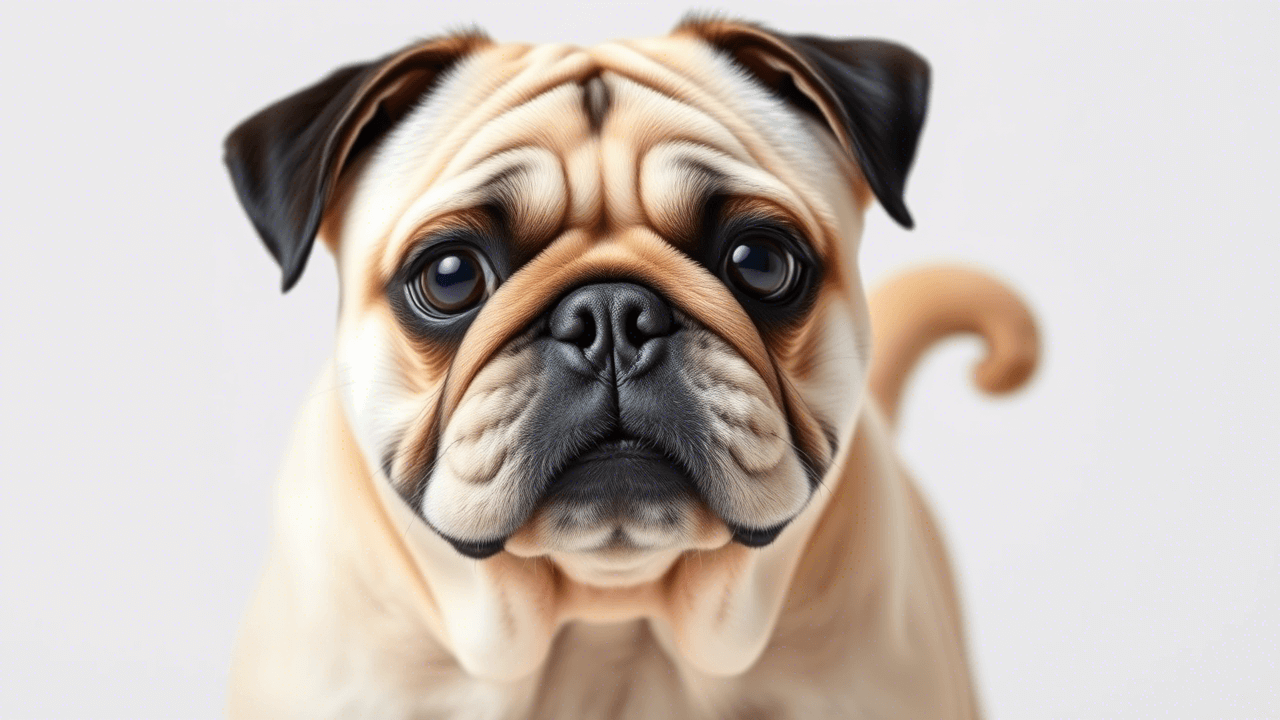The Pug is one of the most beloved dog breeds worldwide, especially in urban India where apartment living and compact spaces are the norm. Known for their wrinkly faces, expressive eyes, and clownish personalities, Pugs are small dogs with big hearts. But while they’re adorable and affectionate, they also come with specific needs, particularly in India’s varied and often hot climate.
In this article, we’ll explore everything you need to know about Pugs—from their temperament and favorite activities to breathing issues, do’s and don’ts, FAQs, and general care advice tailored to India.
Suitability for Apartments
Pugs are exceptionally well-suited for apartment living:
- Size: Small and compact, usually weighing 6–8 kg.
- Exercise Needs: Moderate—short walks and indoor play are often sufficient.
- Noise Level: Generally quiet and not known for excessive barking.
- Adaptability: They thrive in indoor settings and don't require large spaces to stay happy.
If you live in a flat or a small house, the Pug could be an ideal companion.
Playfulness and Temperament
Pugs are playful, affectionate, and good with children and elders alike. Their personality traits include:
- Sociability: They love human company and are known as “shadows” because they follow their owners around.
- Intelligence: Moderate—while not the easiest to train, they are food-motivated.
- Behavior: They are not aggressive and typically get along well with other pets.
They enjoy games like fetch, tug-of-war, and puzzle toys but will also be happy curling up on your lap.
Breathing Issues (Brachycephalic Syndrome)
One of the most critical aspects of Pug ownership is understanding their brachycephalic (short-nosed) anatomy:
- Symptoms: Snorting, snoring, difficulty breathing, overheating, and sometimes fainting after exertion.
- Risks: Indian summers can exacerbate these issues, leading to heatstroke.
- Precautions:
- Avoid vigorous exercise.
- Never leave them in hot cars or direct sunlight.
- Use cooling mats and fans.
- Ensure access to fresh water at all times.
- Note: In some cases, surgery may be required to ease airway obstruction, so regular vet checkups are crucial.
Do’s and Don’ts for Pug Owners
✅ Do’s
- Keep them indoors in a well-ventilated, cool environment.
- Walk them early morning or late evening to avoid heat.
- Clean facial wrinkles daily to prevent infections.
- Groom weekly to manage shedding.
- Use a harness instead of a collar to avoid pressure on the throat.
- Visit the vet regularly for checkups and vaccinations.
❌ Don’ts
- Don’t let them overeat—they're prone to obesity.
- Don’t over-exercise them, especially in warm weather.
- Don’t bathe them too frequently—it can dry out their skin.
- Don’t ignore breathing problems—seek veterinary help immediately.
Favorite Activities
Despite their size and breathing limitations, Pugs enjoy:
- Short walks in pleasant weather
- Indoor games like fetch or hide-and-seek
- Training sessions (keep them short and reward-based)
- Cuddling and companionship—they love to be with their people
- Interactive toys to keep them mentally stimulated
General Care Tips for India’s Climate
India’s climate, especially in summer, can be harsh on Pugs. Here’s how to care for them year-round:
Summer Care:
- Keep them in AC rooms or use fans and cooling mats.
- Provide plenty of water and avoid walks during peak heat.
- Watch for signs of heatstroke: drooling, heavy panting, or lethargy.
Monsoon Care:
- Keep wrinkles dry to prevent fungal infections.
- Use anti-tick sprays as humidity promotes parasites.
Winter Care:
- Use dog sweaters if you live in colder regions like Delhi or Himachal.
- Avoid cold water baths.
Conclusion
Pugs are charming, loving, and adaptable dogs that can make excellent companions, especially for apartment dwellers in India. However, they do require special attention, particularly regarding breathing issues and heat sensitivity. With the right care, love, and regular vet visits, your Pug can thrive and bring endless joy to your home.
Frequently Asked Questions (FAQs)
1. Are Pugs good with children?
2. Do Pugs shed a lot?
3. Can Pugs be left alone at home?
4. What’s their lifespan?
5. Are Pugs expensive to maintain?

About SniffnTail
SniffnTail is your go-to destination for everything pets. From helpful advice, tips, and insights to thoughtfully selected products and resources, we’re here to support pet owners at every stage of their journey. Whether you're caring for a playful pup, a wise old cat, or anything in between, SniffnTail offers tools and knowledge to make pet parenting easier and more joyful.
Related Articles
 Dog Breeds • 25-30 minutes
Dog Breeds • 25-30 minutesThe Ultimate Turkish Kangal Dog Guide: A Veterinarian's Comprehensive Care Manual
Unlock the secrets to caring for a Turkish Kangal Dog with this comprehensive veterinarian-backed guide. Learn about their unique health needs, behavior, training, nutrition, and more from a board-certified expert with 15+ years of clinical experience.
 Dog Breeds • 16 min
Dog Breeds • 16 minBasenji Dog Breed: A Complete Expert Guide for Health-Conscious Pet Owners
Learn everything about the Basenji breed with veterinary-backed insights—health, behavior, grooming, training, care tips, FAQs, and more. Ideal for pet parents seeking expert-level guidance.
 Dog Breeds • 18 min
Dog Breeds • 18 minBarbet Dog Breed Guide: Expert Vet Advice on Care, Health, Training & Nutrition
Discover the ultimate veterinary guide to the Barbet dog breed—temperament, health, grooming, training, nutrition, FAQs, and more. Backed by clinical experience and research.

